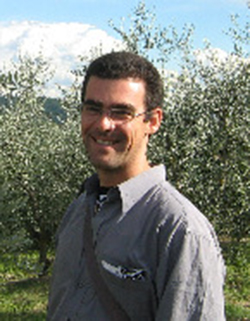Jeremy Proulx

Education
- Ph.D., Philosophy, McMaster/Guelph/Laurier, 2011
- MA, Theory and Criticism, University of Western Ontario, 2004
Interests and Expertise
Dr. Proulx specializes in the history of classical German philosophy (especially Jacobi, Kant, and Schelling), 19th century continental philosophy and aesthetics. His teaching interests include:
- the history of philosophy
- existentialism
- aesthetics
- philosophy of technology
- philosophy of religion
Courses
- PHIL 100 Introduction to Philosophy
- PHIL 110 Philosophies of Life
- PHIL 120 Critical Reasoning
- PHIL 130 Introduction to Logic
- PHIL 215 Philosophy of Religion
- PHIL 216 Philosophy, Technology, and Digital Life
- PHIL 223 Medical Ethics
- PHIL 225 Political Philosophy
- PHIL 260 Existentialism
- PHIL 330 Ancient Philosophy
- PHIL 331 Modern Philosophy
- PHIL 332 Nineteenth-Century Philosophy
- PHIL 470/570 Twentieth-Century Continental Philosophy
Publications and Presentations
- “Speaking and Thinking for Ourselves.” In TextGenEd: Continuing Experiments. Edited by Carly Schnitzler, Annette Vee, and Tim Laquintano. (2024): https://wac.colostate.edu/repository/collections/continuing-experiments/january-2024/ethical-considerations/speaking-and-thinking-for-ourselves/
- “Duration in Relativity: Some Thoughts on the Bergson-Einstein Encounter.” In Southwest Philosophy Review, 33:2 (July 2017)
- “The Illusion of Freedom, the Tragedy of Fate, and the Moral Development of Ender Wiggin.” In Ender’s Game and Philosophy. Edited by Kevin S. Decker. (Wiley 2013)
- "Art and the Fecundity of Nature." In Akten des XI. Kant-Kongresses 2012. Edited by Stefano Bacin, Alfredo Ferrarin, Claudio La Rocca, Margit Ruffing. De Gruyter.
- “Practical Paths in Philosophy: Comments on the 1785/86 Spinoza Controversy.” Intellectual History Review, 21:4 (December 2011).
- “Nature, Judgment, and Art: Kant and the Problem of Genius.” Kant Studies Online. (January 31, 2011).

